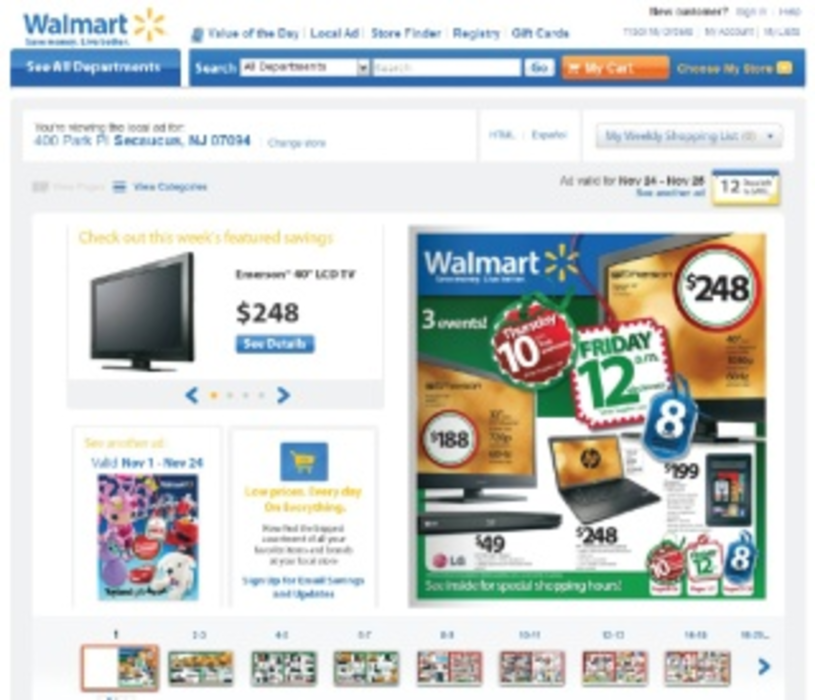Location-based advertising has become an integral component of overall communications strategies. This month, several major brands introduced programs that leverage geo-local information to offer consumers more relevant content.?
“Retail has always fundamentally been a local business,” said Sarah Spencer, director of national media relations at Wal-Mart Stores, which launched approximately 3,500 store-specific Facebook pages in October that enable consumers to receive offers and updates from local Wal-Mart retail locations. ?
The Facebook application enables the retailer to send its Facebook fans product and rollback alerts and invitations to in-store events. ?
A new approach could not come at a better time for Wal-Mart. Its e-commerce chief resigned in August. Sales at discount stores open at least a year and U.S. same-store sales have fallen the past two years. The company does not disclose the percentage of sales it receives from the Internet, but Wal-Mart has clearly shifted its approach from physical to digital shopping with its September OneRiot and April Kosmix acquisitions. ?
Sears Holdings Corp. is also attempting to find its direction through digital. David Friedman, SVP and president of marketing, will resign in January, leaving Imran Jooma, SVP and president of e-commerce at Sears Holdings, to manage the retailer’s online, marketing, financial services and pricing business units as one unit. The announcement came after the company reported a decline in revenue of 1.6% to $43.3 billion for fiscal year 2010 compared with the prior year. ?
Like Wal-Mart, Sears Holdings Corp. launched a digital, location-based advertising program in October to offer consumers weekly circulars for hundreds of Sears and Kmart stores nationwide. The “LocalAd” program offers buyers information on local stores, available products and current sales. ?
“The hyper-local approach is where customers are telling us to go,” Tom Aiello, VP of public relations at Sears Holdings, said at the time of the launch. “The local model and mobile offerings allow you to drill down specifically to your store.”?
“Traditionally you saw localized media buying, but marketers weren’t localizing their messaging,” said Donovan Neale-May, founder and executive director of the CMO Council. “Now marketers are localizing messaging to have more impact and distinction.” ?
Verizon Wireless risked a PR catastrophe in October when it announced it would be making changes to its privacy policy in order to use consumer data to place targeted ads online. The program will provide advertisers with consumer records of aggregated website visits, cell phone usage locations, demographics information and interests. ?
Bill Kula, director of media relations at Verizon, said the program will not provide advertisers with specific information about individuals, and said he anticipated only a small number of consumer opt-outs.








